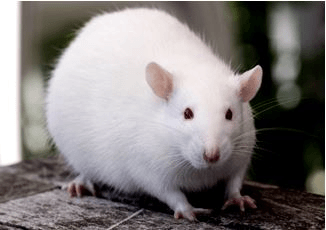LETHAL DOSE AND HISTOPATHOLOGICAL STUDIES OF THE ACUTE AND SUB ACUTE EFFECTS OF CALLIANDRA PORTORICENSIS ROOT BARK METHANOL EXTRACT ON THE VITAL ORGANS OF ADULT MALE ALBINO RATS
Keywords:
animal test, Calliandra portoricensis, degeneration, histopathological study, LD50, lethal dose50, necrotic-erosion, toxicity, vital organAbstract
Background: Calliandra portoricensis (C. portoricensis) is also known as snowflake acacia or powder-puff and belongs to the family mimosaeae. Toxicology can be defined as the study of the harmful, poisonous and adverse effects of drugs and other chemicals constituents found in plants, which may increase the chances of mortality or weakness in the general health, physically as well as mentally.
Objective: To evaluate the results of the oral administration of C. portoricensis root bark methanol extract on the vital organs of adult male albino rats.
Methods: Acute oral toxicity studies were performed according to the organization for economic cooperation and development (OECD), 2002. Thirty-five male albino rats (160-180g) were divided into seven groups with five rats per group. Group G were given a single oral limit dose of 5000 mg/kg b.wt of C. portoricensis root bark methanol extract while group A control animals received an equivalent amount of distilled water. Group B, C, D, E and F where administered 100, 200, 400, 800 and 1600 mg/kg b.wt of C. portoricensis root bark methanol extract respectively for 7 days. The C. portoricensis root bark methanol extract was administered orally using a calibrated 1ml syringe with attached polythene cannula. At different stages in the study, rats were sacrificed and the vital organs such as stomach, kidney, liver, small intestine and pancreas were excised and fixed in 10% formalin for Histological examination.
Result: Rats given CPRBME showed toxicity symptoms including writhing, dullness, decreased locomotion, fatigue etc. 2-4 hours after administration of CPRBME in groups B – F as compared to group A. Also there were severe diffused vacuolar degeneration, necrosis of hepatocytes, necrotic-erosion of mucosa membrane and various degree of kidney tubular degeneration compared to the control group A. The spleen of both control and treated groups had no visible lesion.
Conclusion: The present results of the study showed that acute and sub acute administration (14 days as seen in this study) of C. portoricensis root bark methanol extract may impede the proper function of vital organs.

Peer Review History:
Received: 4 December 2021; Revised: 13 January 2022; Accepted: 8 February, Available online: 15 March 2022
Academic Editor: Prof. Cyprian Ogbonna ONYEJI , Obafemi Awolowo University, Ile-Ife, Nigeria, conyeji@oauife.edu.ng
, Obafemi Awolowo University, Ile-Ife, Nigeria, conyeji@oauife.edu.ng
Reviewers:
 Dr. Bilge Ahsen KARA, Ankara Gazi Mustafa Kemal Hospital, Turkey, ahsndkyc@gmail.com
Dr. Bilge Ahsen KARA, Ankara Gazi Mustafa Kemal Hospital, Turkey, ahsndkyc@gmail.com
 Prof. Dr. Hassan A.H. Al-Shamahy, Sana'a University, Yemen, shmahe@yemen.net.ye
Prof. Dr. Hassan A.H. Al-Shamahy, Sana'a University, Yemen, shmahe@yemen.net.ye
Downloads

Published
How to Cite
Issue
Section

This work is licensed under a Creative Commons Attribution-NonCommercial 4.0 International License.









 .
.